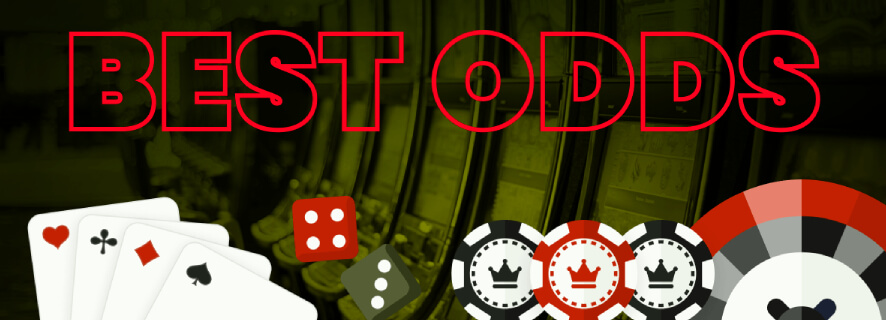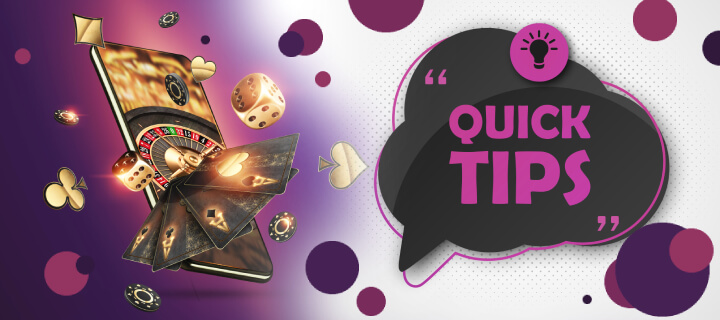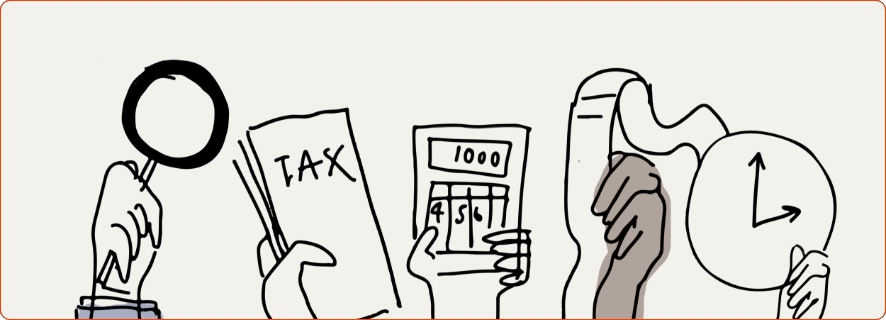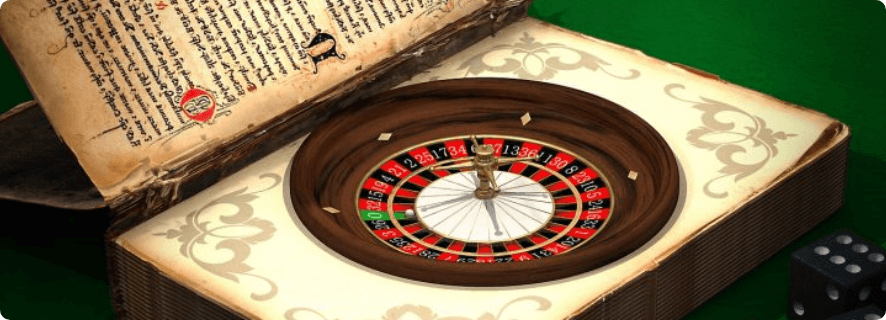Blackjack Strategies | Guide To Blackjack Odds & Probabilities

Hiya, folks! This time we’re going to talk about blackjack strategies. Blackjack is one of the oldest casino games and it’s only natural to assume that there are plenty of strategies out there. In this guide, we are going to give you a few basic tips on how to, potentially, improve your blackjack games.
This guide will not help you win ALL your games!
A quick disclaimer before we begin this guide. While we will provide you with basic and well-known tricks that might help you win more games, this guide isn’t going to magically make you win at blackjack. Blackjack, just like all gambling games, is mostly luck-based and therefore cannot guarantee constant winning. The purpose of this guide is to help you improve your odds of winning and help you approach this game from a calculated angle.
Rule #1 – Simply knowing the rules isn’t enough!
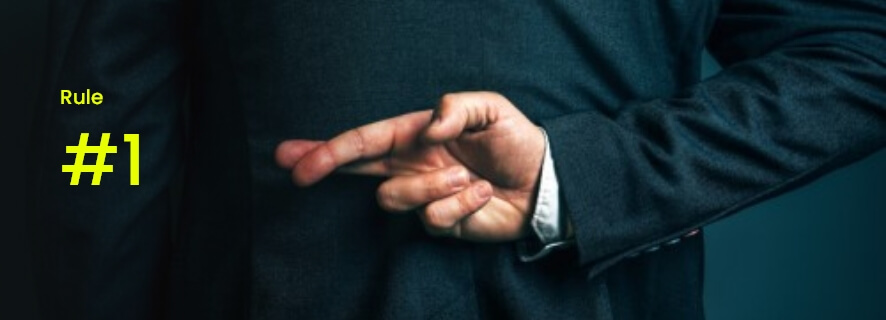
Every avid blackjack player will tell you that just knowing how to play the game isn’t enough. You’ll need to know a lot of tips and tricks before you can even stand your ground against a competent dealer and/or AI. Naturally, the basic rules are where you want to start before you hit the roulette. It is advised that you observe some blackjack games for a while and play some games for fun before you start placing funds. You will thank us later and so will your wallet.
Rule #2 – Know when to surrender
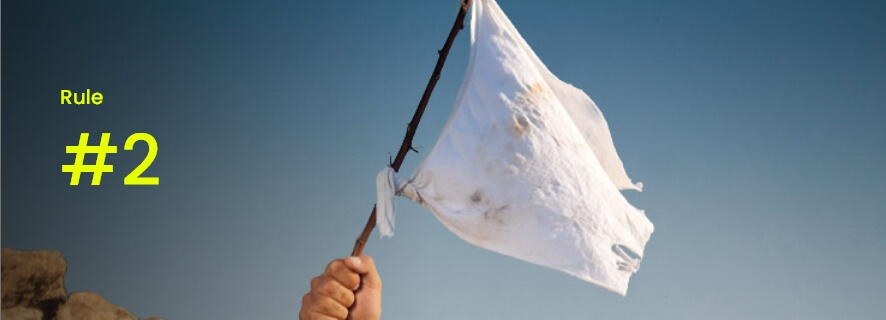
While it may sound like a cowardly word, surrendering during a hand is a perfectly viable option. After your second hand is dealt, you may choose to surrender by offering half your payment amount. While it may seem like a waste, if your chances of winnings are slim, it’s better to only lose half your bet than the entire thing, right? There are charts on when the right time to surrender is, but the general rule is to consider surrendering when you get dealt bad cards while the dealer’s up-card is an ace.
Rule #3 – Know when to split
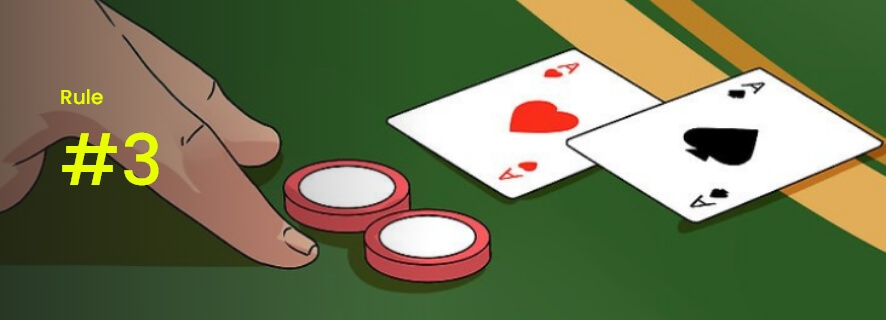
When you get dealt two cards of the same value, you may choose to split them. When you split, you are essentially playing two hands. This can be risky but is also a great way to double your profits if the dealer’s hand looks weak. Afterward, you can win one or both of your hands.
Before you even consider splitting, know the house rules. Some online casinos will not let you play further after you split your hands. Make sure you know whether or not this is allowed before you start splitting your cards, especially smaller paired.
It’s important to know when the right time to split is. Best case scenario, you will finish your hand with twice the amount you normally would. However, if you split for smaller cards, make sure the dealer has particularly weak cards as well.
Rule #4 – Double down when the time is right
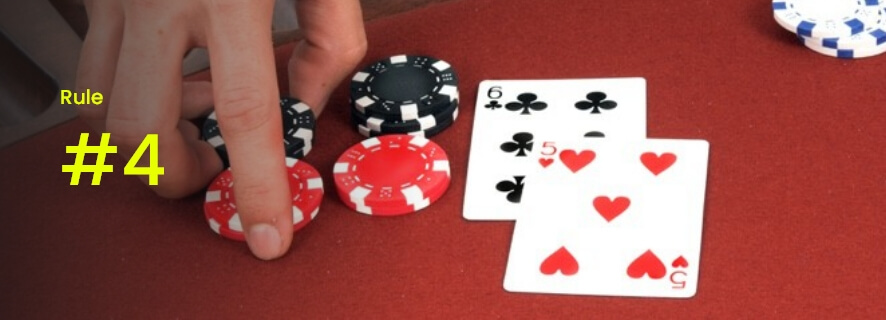
Doubling down is a great strategy especially when you are sure you’re going to win. Double down is the act of doubling your bet and increasing your potential profit by up to 100%. The tradeoff is that once you double down, you won’t be able to take any more hits and must stand.
Just like with taking hits and standing down, there are certain times when doubling down is a given and when doubling down is risky business. You should always double down when your opponent has a pair of weak cards (where the sum is 6 or less). Naturally, there are lots of other rules when the right time to double down is.
Rule #5 – Know when to hit and when to stand
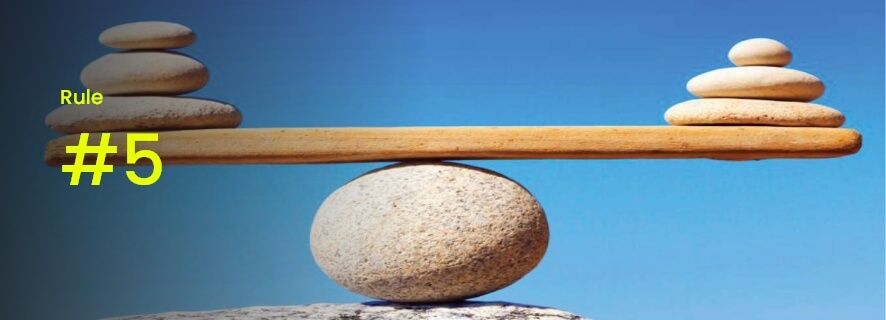
There are phone books worth of information about the right time to hit and stand in blackjack. While most of these are based on personal preference, one universal rule is to hit hard when the dealer has particularly weak cards (such as 2 or 3 for the upcard). Hitting can be a risky business but can get you closer to your goal. Most new players feel the urge to take a hit rather than stay. Refer to a blackjack chart for more info. This brings us to our next rule…
While most basic rules will teach you what all of these are, none will tell you when is the right time to do any of them. Knowing when to Surrender, Spilt and especially double down are key factors to maximizing your profits and minimizing your losses.
If you are worried that everyone has different methods when they should do any of the above-mentioned, don’t be. While it’s true that everyone can have their own “homebrewed rules”, it’s almost universally accepted when someone should double down or stand. If you aren’t sure what you should do after a certain combination of cards is dealt with, you can find a lot of helpful books, guides, and charts. This brings us to…
Rule #6 – Make a chart and use it
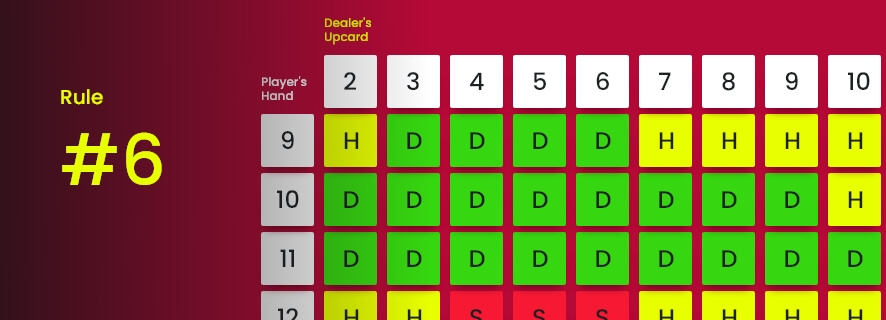
A lot of people find it helpful to print out a cheat sheet for various combinations on when they should surrender, split, double, or stand in blackjack. You may be thinking that this equates to cheating on a test but it really isn’t. While brick-and-mortar casinos won’t have them printed out for their players, you are more than welcome to bring your own cheat sheet from home and look at it whenever you feel like it.
As for online roulette, well, even if online casinos didn’t like you bringing a cheat chart, they can’t really see what’s next to your PC/Mobile phone. Not only do we recommend always having a cheat chart next to you, but we would also go as far to say that it’s absolutely essential especially if you are a brand new player. So print out a sheet (or open it in a new window) and look at it whenever you aren’t sure what to do next during a blackjack game.
Rule #7 – Memory > Strategy
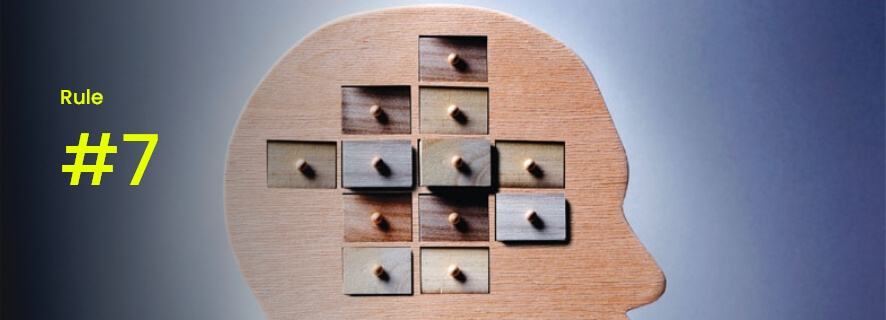
Knowing strategy is important but having a good memory can mean the difference between winning and losing a game. The charts will tell you when to double down and when to stay on certain hands, however, if you have been paying attention to the cards dealt, you may want to ignore some of the rules.
If you keep track of the cards dealt and when the deck gets shuffled, you may just have an advantage over all other players. This is especially true with single-deck blackjack games. In blackjack games where more decks are used, this will obviously be much harder to achieve but not impossible.
Counting cards and keeping track of them is normally frowned upon by casinos but there isn’t much they can do about it nor is there a way they can prove you counted cards. Our advice: keep track of the cards dealt with your opponents and dealer and make sure to note when the deck is shuffled.
Rule #8 – Know the house rules
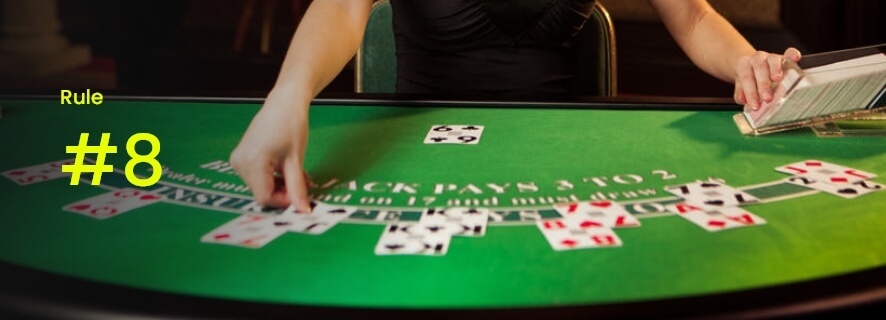
The basics of blackjack will always be the same, no matter where you end up playing this table game. With that said, each casino, both online and offline, is able to implement its own set of house rules. They can change the minimum bet amount, the number of decks they use, and even ban splitting on certain card combinations.
If you are planning to play blackjack at a casino that has its own set of house rules, you may have to create a brand new blackjack chart that will only work for that specific blackjack table. Seriously, we cannot stress enough how one simple house rule can make all the difference.
Rule #9 – Insurance bets and why you shouldn’t make them
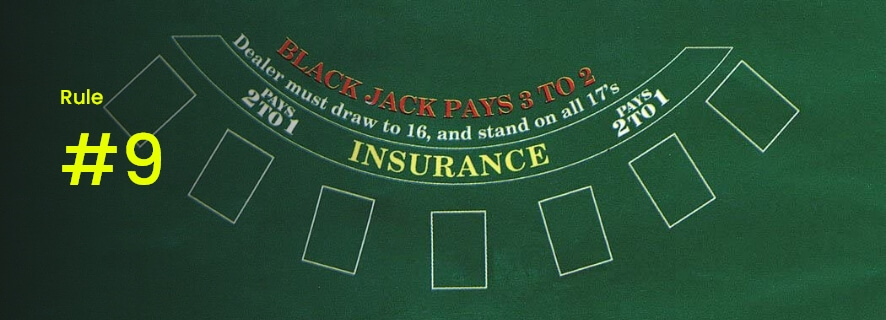
An insurance bet is often called a “sucker bet”. This happens when you get dealt cards that equate to 19, 20 and the dealer offers you to make an insurance bet. This bet is basically the dealer’s way of offering you less money for your win.
So don’t accept an insurance bet because chances are you will just win less money than you normally would. Even in the off chance that the dealer does score a blackjack, you are still better off at not accepting an insurance bet because you will win more money, in the long run.
Blackjack Strategies Summary
Being one of the oldest gambling games available, there are numerous other tips, tricks, and strategies that may help improve your chances of winning at blackjack. With all that said, never forget that blackjack is a luck-based game and that the house always has an edge over all players. Thank you for reading our review and we hope this guide gave you more insight into Blackjack.
